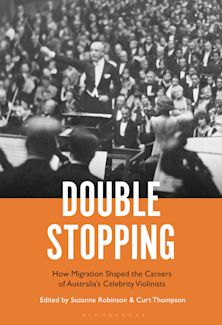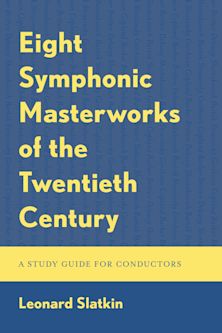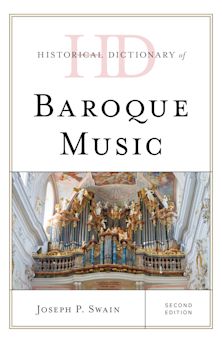- Home
- ACADEMIC
- Music & Sound Studies
- Classical Music
- Amateur Musicians in the Nineteenth Century
Amateur Musicians in the Nineteenth Century
Markets, Practices, and Identities
Amateur Musicians in the Nineteenth Century
Markets, Practices, and Identities
Payment for this pre-order will be taken when the item becomes available
You must sign in to add this item to your wishlist. Please sign in or create an account
Description
By carefully piecing together musical and documentary evidence, Amateur Musicians in the Nineteenth Century reveals the musicians that have so far been largely invisible in histories of music.
Musical amateurs occupy an indistinct, low-status, peripheral place in musical life today. Often defined by what they are not and compared unfavorably to professionals, amateurs are found to lack expertise, qualifications, and status. This book critiques these exclusionary ideologies, interrogating the historical amateur as a clear identity, role, and status within musical life.
The focus of this edited collection spans across Europe and out to New Zealand and Australia, covering a wide range of repertoire and genres and providing a comprehensive survey of amateur music-making and its significance in the broader musical culture of the nineteenth century. Rather than being opposed to professionals, amateurs were considered to overlap with them in terms of skill. Far from learning by rote a narrow selection of canonical studies and works, such amateurs cross-trained on various instruments, freely adapted popular tunes to their own purposes and skills, improvised on scores, and composed afresh. In not just an exploration of the past, but of the future, Amateur Musicians in the Nineteenth Century offers insights that are relevant today, particularly to the project of raising the status of amateurism in the best sense.
Table of Contents
List of Tables
Introduction
Part I - Markets: Arrangement, Repertoire, and the Amateur Musical Economy
1. Haydn Appropriated: Two Manuscript Songs in Amateur Collections 1790–1805
Gillian Dooley (Flinders University Library, Australia)
2. Evocations of Scotland in the Accompanied Sonatas of Pleyel and Koželuh
Allan Badley (University of Auckland, Australia)
3. “Un caractère tout à fait classique”: Parisian Practices of Arrangement and the Domestic Debt to the Past
Mark Everist (University of Southampton, UK)
4. “Germanizing” the Plot? Arrangements of “Foreign” Opera in Early Nineteenth-Century Vienna
Sam Girling (Trinity College of Music, UK)
5. The Romantic Recorder: An Exploration of Performance Practice for Csakan Repertoire
Imogen Morris (University of Auckland, Australia)
Part II - Practices: Pedagogy, Performance, and Amateur Agency
6. “Those Who Can, Teach”: Promoting Amateurs in Nineteenth-Century Piano Pedagogy
Andrew Ward (Independent Scholar, UK)
7. Johann Baptist Wa?hal's Legacy as Keyboard Pedagogue
Halvor K. Hosar (Norwegian Institute for Cultural Heritage Research, Norway)
8. “An Impress of the Abiding Truth”: The Problem with Classifying Amateurs, Professionals, and Artists in Kate Chopin's The Awakening (1899)
Erin Atchison (Independent Scholar, New Zealand)
9. The Harp Virtuoso Marie Mösner (1838–84): Professional Performer, Non-Professional Composer?
Anja Bunzel (Czech Academy of Arts and Sciences, Czechia)
Part III - Identities: Community, Gender, and Cultural Belonging
10. “A Small Radiating Centre”: New Zealand Amateur Pianists Entertain
Kirstine Moffat (University of Waikato, New Zealand)
11. A Lady Always Looks Graceful with a Violin: The Auckland Young Ladies' Orchestra 1888–99
Elizabeth Nichol (Independent Scholar, New Zealand)
12. “Half German and Half Colonial”: Building Community in Wellington's Liedertafeln ca. 1900
Samantha Owens (Independent Scholar, New Zealand)
List of Contributors
Index
Product details

| Published | Apr 30 2026 |
|---|---|
| Format | Ebook (Epub & Mobi) |
| Edition | 1st |
| Extent | 280 |
| ISBN | 9798765164501 |
| Imprint | Bloomsbury Academic |
| Publisher | Bloomsbury Publishing |


































